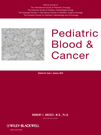Restrictions in daily life after retinoblastoma from the perspective of the survivors
Abstract
Background
Little is known about the impact of retinoblastoma (RB) on the health status of survivors in terms of disabilities and worries, both of which may restrict participation in activities of daily life.
Methods
In this population-based cross-sectional study, content analysis was used to extract data on perceived restrictions and worries, from semi-structured interviews held with 156 RB survivors aged 8–35 years. The International Classification of Functioning Disabilities and Health (ICF) was used as a framework.
Results
Of all survivors, 55% perceive RB-related restrictions in daily life activities (school, professional career, mobility, self-care, intimate relationships). Young/adolescent survivors (6%) and adult survivors (15%) frequently report anxiety about developing a second primary tumor (SPT). Compared with the general population, RB survivors did not differ in rates of employment or marital status. However, special educational services were more frequently offered, and the level of completed education was lower.
Conclusion
RB has influenced the lives of most survivors and, even though their prognosis was good, illness-related restrictions are common. Especially fear of developing SPT and of further loss of vision are important life-long problems, and many survivors had special education needs. The ICF might serve as a bridge between families and professionals, because this classification may facilitate early detection of problems. Pediatr Blood Cancer 2010; 54:110–115. © 2009 Wiley-Liss, Inc.




